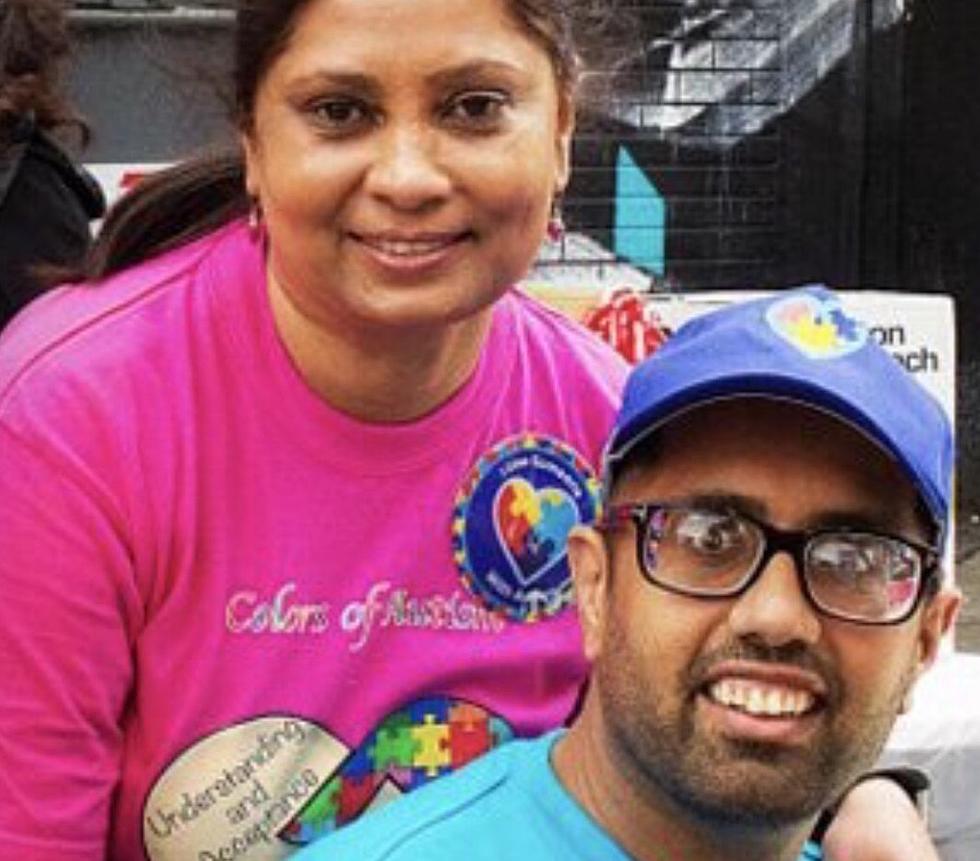
NJ parents of adults with autism struggle with few options
Having a child with autism is filled with challenges. But a difficult situation can become almost impossible once a young man or woman on the autistic spectrum turns 21 because there are fewer programs and services.
Sherry Singh, who runs a pre-school in Jersey City, has a severely autistic 32-year-old son.
She said when Ralph was younger, he attended the Jersey City Regional Day school where he was able to get speech therapy, and he even participated in a Special Olympics swimming program.
“I was told my son would never speak, but when he was 8 years old his first word was 'Daddy.' I wondered why it wasn’t 'Mommy' but I was so happy he spoke," she said.
After Ralph turned 21, he was enrolled in an adult program and a series of problems began.
“They would come between 9 and 9:30 to pick him up and drop him back home at 2 o’clock. How can a parent work?” she wondered.
Soon there were other problems.
“My son would come home with black-and-blues on his body, pinch marks, bite marks.”
When she asked what had happened, “the answer was we don’t know.”
Singh said her son had never been violent growing up but “he’s now very violent, being in that program and being abused.”
Singh said she pulled her son out of the program after he was accidentally left at a gas station. She has looked at a few other programs for autistic adults but “they are so filthy and when I see the workers and the way those kids are just sitting there watching TV or just flapping a paper, they’re not doing much with them and it’s not fair.”
So now Ralph just stays home, watched by Singh’s husband, who works from home, and a few hours a week by a helper.
Suzanne Buchanan, the executive director of Autism New Jersey, said there are state programs to help adults with autism, but there aren’t nearly enough of them for the hundreds of families who are still looking for appropriate employment support and day programs.
"Medical care for adults with developmental disabilities is very hard to come by. There’s still a tremendous need," she said.
“The care-giving demands on parents of adults with autism are just simply exhausting. It’s a constant set of logistical and emotional worries.”
Singh has started the nonprofit Colors of Autism program in Jersey City in an effort to mobilize other parents with grown children who have autism. Many have put their kids in residential homes or moved away.
“It is sad. Why can’t we have programs in our own hometown or anywhere in New Jersey?" she said.
“I have a fear of dying. What’s going to happen to my child? My son is my world. I refuse to put my son in a home, I will not. I can’t live without him.”
Buchanan stressed that “there are constant supervision needs, constant treatment needs and the system is still quite a patch-work, and so it’s difficult to put that all together."
“The State Division of Developmental Disabilities had great intentions when it designed the current system, but when we’re advocating for individuals with severe autism and intellectual disabilities, we see some gaps.”
Singh said her father recently passed away, her mother has Alzheimer’s and her mother-in-law is on dialysis.
She said most of the time the family doesn’t even go out in public anymore with Ralph because they are shunned.
“The stares and the bad looks that we get when you’re out there. I was told by so many people that he needs to be locked up," she said.
Singh said taking care of her son is exhausting but “his smile gives me the courage and the strength to go on and fight for his rights.
“I’m surprised I’m crying, but I’m not going to let my tears make me weak."
More From WOBM:
More From Beach Radio










